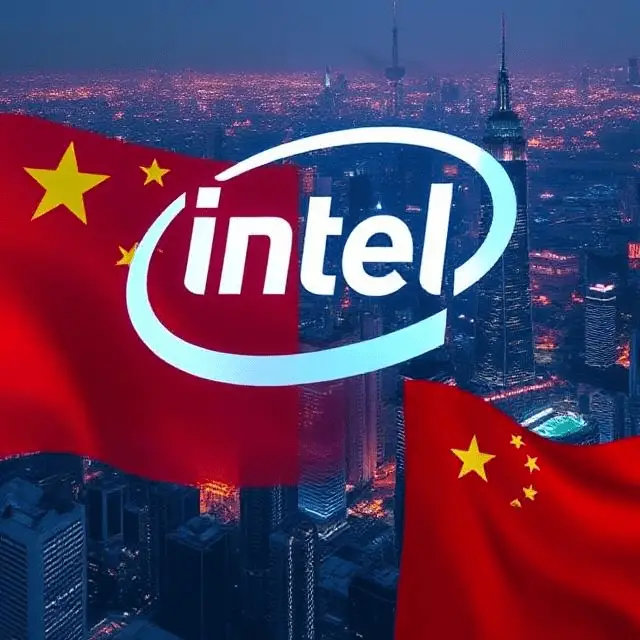
China’s recent overhaul of its semiconductor policy is poised to significantly impact U.S. chipmakers, particularly Intel, while providing advantages to companies like Taiwan Semiconductor Manufacturing Company (TSMC). The policy introduces steep tariffs on U.S.-made chips but exempts those produced by American firms that outsource manufacturing to foreign foundries, notably TSMC.
Announced on April 11, 2025, the new tariffs are based on the location of wafer fabrication rather than packaging. This means that chips designed by U.S. companies but manufactured abroad, such as those by AMD and Nvidia produced at TSMC facilities, are classified as non-U.S. origin and thus avoid the new tariffs. Conversely, companies like Intel, which operate U.S.-based fabrication plants, face tariffs of 84% or higher.
The policy shift has led to immediate market reactions. Intel’s stock fell by 5%, reflecting investor concerns over the company’s vulnerability to the new tariffs. In contrast, shares of companies like AMD and Nvidia, which rely on TSMC for manufacturing, saw gains.
This development is part of China’s broader strategy to achieve technological self-reliance and reduce dependence on foreign technology. The “Made in China 2025” initiative aims to increase the domestic content of core materials to 70% by 2025, with the semiconductor industry being central to this goal.
In line with this strategy, Chinese authorities have reportedly instructed telecom companies to phase out the use of foreign chips, including those from Intel and AMD, by 2027. This move underscores China’s commitment to bolstering its domestic semiconductor industry and reducing reliance on U.S. technology.
While the policy poses challenges for U.S. chipmakers with domestic manufacturing, it offers a competitive edge to companies that outsource production to foreign foundries. TSMC, in particular, stands to benefit as it continues to be a preferred manufacturing partner for many U.S. semiconductor firms seeking to navigate the new tariff landscape.
As the global semiconductor industry grapples with these changes, companies may need to reassess their manufacturing strategies to mitigate the impact of geopolitical tensions and trade policies. The evolving landscape underscores the importance of flexibility and adaptability in maintaining competitiveness in the face of shifting international dynamics.
